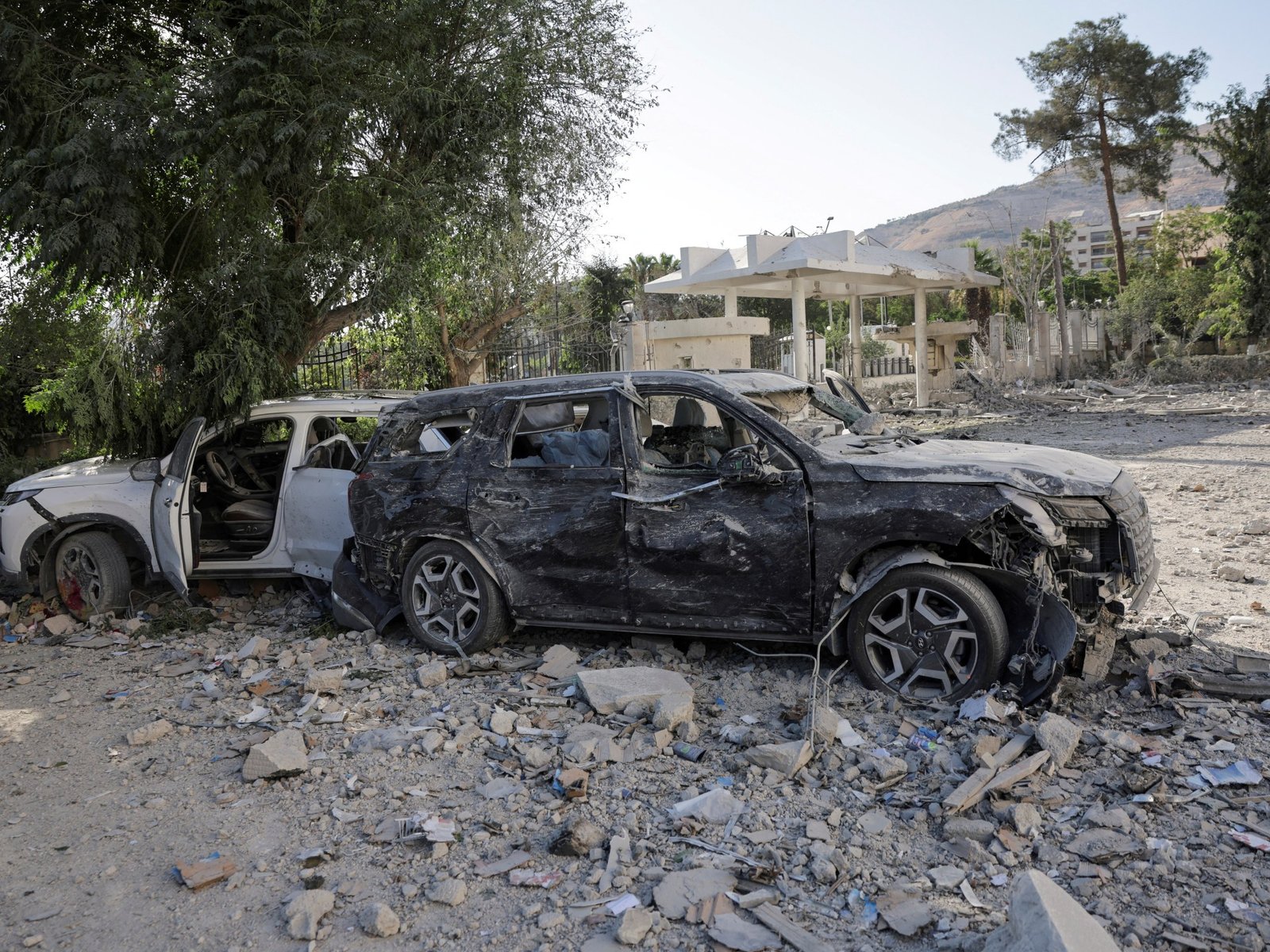What began as localized violence between Druze and Bedouin communities in southern Syria over the weekend escalated dramatically by Wednesday, prompting Israel to launch airstrikes against the Syrian Ministry of Defence and other strategic sites in Damascus.
According to the Syrian Ministry of Health, at least three individuals lost their lives in the attacks on the capital. Additional Israeli airstrikes targeted the southwestern provinces of Suwayda and Deraa as well.
Suwayda—home to a large Druze population—has seen a surge in violence in recent days. Earlier this week, Israeli forces had already targeted Syrian government units operating in the region.
Israeli authorities justify these airstrikes as efforts to safeguard the Druze community in Suwayda, where numerous casualties have resulted from clashes involving local armed factions and government forces.
However, many local activists and analysts argue that Israel’s military actions are deepening internal discord in Suwayda. This ongoing bombardment, which has persisted since the ousting of former President Bashar al-Assad in late 2024, undermines ceasefire agreements negotiated by Druze leaders and the Syrian government.
“Israel is not only portraying the entire Druze community as pro-Israel but also suggesting that they support its bombardment of Damascus,” stated Dareen Khalifa, a Syria expert and senior advisor with the International Crisis Group.
Exploiting Internal Strife
The violence in Suwayda reportedly ignited when Bedouin armed groups kidnapped a Druze trader en route to Damascus on July 11, according to the Syrian Observatory for Human Rights, a UK-based organization.
This kidnapping quickly escalated into broader violence between the two historically rival communities, drawing in Syrian government forces.
Syria’s new administration has sought to assert control following a protracted 14-year civil war and the end of the al-Assad dynasty’s five-decade reign. However, enforcing order in Suwayda has proven challenging, partly due to Israel’s ongoing threats against any Syrian military presence in the region, which borders the Israeli-occupied Golan Heights.
Initially, the Druze welcomed the deployment of government forces following the recent outbreak of violence, but tensions soon flared between some Druze fighters and government troops amid reports of human rights abuses coming to light, as reported by local monitors and analysts.
The Syrian presidency has acknowledged some actions by its security forces as “unlawful criminal acts,” providing Israel with a rationale to continue its airstrikes aimed at maintaining Syria’s instability and fracturing its unity while catering to its own Druze citizens who serve in the Israeli military.
“From Israel’s perspective, they prefer a weakened Syrian central government, fragmenting the nation into sectarian, self-governing enclaves,” explained Aymenn Jawad Al-Tamimi, an expert on Syrian dynamics.
Mixed reactions regarding Israel’s actions have emerged from Suwayda, highlighting a prevailing distrust of the new Damascus government, largely composed of Sunni officials, including President Ahmed al-Sharaa, many of whom previously belonged to Hayat Tahrir al-Sham, once affiliated with al-Qaeda.
Residents of Suwayda attribute part of this distrust to the government’s inaction in holding accountable those fighters involved in the deaths of numerous Alawites along Syria’s coast in March.
Alawites, an offshoot of Shia Islam, align with the al-Assad family. The government is currently investigating these events, with findings expected to be released in October.
Abuses and Fears
Human rights violations, including the execution of captured fighters, have been reported by government forces in Suwayda.
“I had hoped for a restoration of order, but not in this manner,” voiced Fareed, a young Druze resident.
Local news outlet Suwayda24 indicated that government-linked fighters executed nine unarmed civilians during a raid on a family compound on July 15, a report confirmed by Al Jazeera’s verification unit, Sanad.
Questions sent to Uday al-Abdullah, an official with Syria’s Ministry of Defence, regarding these execution allegations went unanswered prior to publication.
Nonetheless, the Syrian Health Ministry disclosed that numerous bodies, including those of both security personnel and civilians, have been discovered in Suwayda’s National Hospital.
Although ceasefires have been repeatedly established between Druze factions and the Syrian government, including a recent agreement on Wednesday aimed at fully integrating Suwayda into the Syrian state, Israeli attacks have persisted. The Druze faction led by Hikmat al-Hijri, once supportive of al-Assad, has now rejected this ceasefire.
Throughout the civil war, clerics and armed Druze factions managed to negotiate a degree of autonomy while defending against groups like ISIS. Following al-Assad’s fall in December 2024, al-Hijri demanded constitutional changes to secure enhanced regional autonomy for Suwayda and its secularization.
“His stance on rewriting the constitution does not reflect the majority opinion in Suwayda,” noted Al-Tamimi, emphasizing the pragmatism of those willing to engage with the new government to preserve their autonomy.
“However, due to recent government actions, al-Hijri’s views will likely garner increased support,” he cautioned.
Calls for Intervention
As violence persists in al-Suwayda, al-Hijri has controversially urged the international community to safeguard the Druze in Syria.
This call raises concerns among critics who believe it masks a desire for Israeli intervention— a stance many in Suwayda oppose.
Samya, a local activist residing several kilometers from the ongoing clashes, expressed discomfort with Israel’s airstrikes, stating she does not support foreign intervention. At the same time, she fears for civilian safety amid potential government raids.
“We are unsure what to expect,” she relayed to Al Jazeera. “There’s fear, we don’t know who might come to our door or how they might react— the uncertainty is terrifying.”
Al-Tamimi warned that Israel’s narrative of “protecting” the Druze could exacerbate internal tensions, potentially leading to collective punishment against the community.
“Israel’s actions fuel suspicions that the Druze are colluding with it to fracture the nation,” he cautioned.

